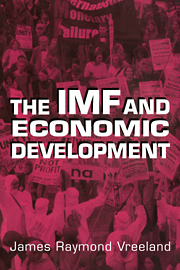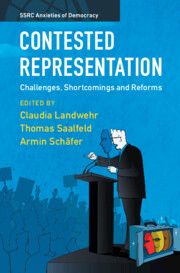The Psychology of Poverty Alleviation
Challenges in Developing Countries
$41.99 ( ) USD
- Author: William Ascher, Claremont McKenna College, California
- Date Published: August 2020
- availability: This ISBN is for an eBook version which is distributed on our behalf by a third party.
- format: Adobe eBook Reader
- isbn: 9781108889933
Find out more about Cambridge eBooks
$
41.99 USD
( )
Adobe eBook Reader
Other available formats:
Paperback, Hardback
Looking for an examination copy?
If you are interested in the title for your course we can consider offering an examination copy. To register your interest please contact [email protected] providing details of the course you are teaching.
-
In order to design, enact, and protect poverty alleviation policies in developing countries, we must first understand the psychology of how the poor react to their plight, and not just the psychology of the privileged called upon for sacrifice. This book integrates social and psycho-dynamic psychology, economics, policy design, and policy-process theory to explore ways to follow through on successful poverty-alleviation initiatives, while averting destructive conflict. Using eight case studies across Latin America, Southeast Asia, and South Asia, William Ascher examines successes and failures in helping the poor through affirmative action, cash transfers, social-spending targeting, subsidies, and regional development. In doing so, he demonstrates how social identities, attributions of deservingness, and perceptions of the policy process shape both the willingness to support pro-poor policies and the conflict that emerges over distributional issues.
Read more- Can help improve poverty-alleviation programs while avoiding destructive conflict
- Reframes the conversation around poverty-alleviation by redirecting the conversation away from the misleading preoccupation with income distribution
- Appeals to readers across the fields of political and social psychology, economics, political science and policy design
Reviews & endorsements
'In this ground-breaking book, Professor Ascher applies social identity theory and other psychological insights to the problem of garnering and maintaining political support for policies to reduce poverty. In the current context of intensifying political polarization, this book is essential reading for academics, political leaders, and policymakers.' Judith Teichman, University of Toronto, Scarborough
See more reviews'Redistributive policies create winners and losers. This tour de force by Professor Ascher examines key redistributive policies for poverty alleviation – among them affirmative action, cash transfers, and social spending. Ascher demonstrates what makes these policies acceptable to key stakeholders, as well as what generates resistance and spark into conflicts. An instant classic, it will long be read and discussed by students and scholars of social policies.' Arun Agrawal, University of Michigan
'Ascher is a scholar advocate for redistributive policies that blunt the harsh edges of capitalism by giving it a humanistic surface. The theoretical arguments and case studies in this volume make the best possible case for that viewpoint.' Michael Lofchie, UCLA
'If you want to understand how psychological insights inform and help shape successful policies to reduce poverty, this is the book for you. Using case studies from a multitude of countries in the developing world, Ascher provides a succinct and useful set of policy recommendations that serve as a guide for those of us working towards sustainable economic growth, poverty alleviation, reducing hunger and inclusivity of all groups. This book is a must read for all development professionals.' Michael Curtis, USAID
'This book provides an eloquent and seamless synthesis of insights from psychology, sociology, political science and policy sciences to illuminate the many reasons why pro-poor policies may succeed in some settings and fail in others. It steadfastly avoids sweeping and unsupportable generalizations, instead using carefully chosen case studies to illustrate the interplay of these factors in the design, implementation and fate of common pro-poor policy instruments in developing countries. It will interest and inspire academics with a theoretical or practical bent as well as policy makers and policy shapers in governments, donor organizations and civil society. With this impressive work, Professor Ascher has done a great service to the legions of people and organizations committed to policy alleviation but frustrated by the limited success, unsustainability or abject failure of so many efforts. May it be widely read and pressed into service by these people and organizations.' David Pelletier, Cornell University
‘The text offers a practical and useful set of policy recommendations, not only to mitigate poverty but also to promote sustainable economic growth, reduce hunger, and achieve inclusivity across all groups … Recommended.’ R. M. Ramazani, Choice Magazine
Customer reviews
Not yet reviewed
Be the first to review
Review was not posted due to profanity
×Product details
- Date Published: August 2020
- format: Adobe eBook Reader
- isbn: 9781108889933
- contains: 2 b/w illus. 9 tables
- availability: This ISBN is for an eBook version which is distributed on our behalf by a third party.
Table of Contents
Part I Introduction
1. The Challenges of Conflict Sensitive Poverty Alleviation
2. Political Economy Considerations Part II The Underlying Psychology
3. Identity, Attributions, Deservingness Judgments, and Hostility
Part III Lessons from Pro-Poor Policy Instruments
4. Conditional Cash Transfers
5. Social-Sector Spending Targeting the Poor
6. Pro-Poor Subsidies and the Problem of Leakage
7. Affirmative Action
8. Regional Development Targeting the Poorest Areas
Part IV Overcoming Obstacles in the Policy Process
9. How the Wealthy React to Pro-Poor-Labeled Initiatives
10. Lessons and Conclusions.
Sorry, this resource is locked
Please register or sign in to request access. If you are having problems accessing these resources please email [email protected]
Register Sign in» Proceed
You are now leaving the Cambridge University Press website. Your eBook purchase and download will be completed by our partner www.ebooks.com. Please see the permission section of the www.ebooks.com catalogue page for details of the print & copy limits on our eBooks.
Continue ×Are you sure you want to delete your account?
This cannot be undone.
Thank you for your feedback which will help us improve our service.
If you requested a response, we will make sure to get back to you shortly.
×








